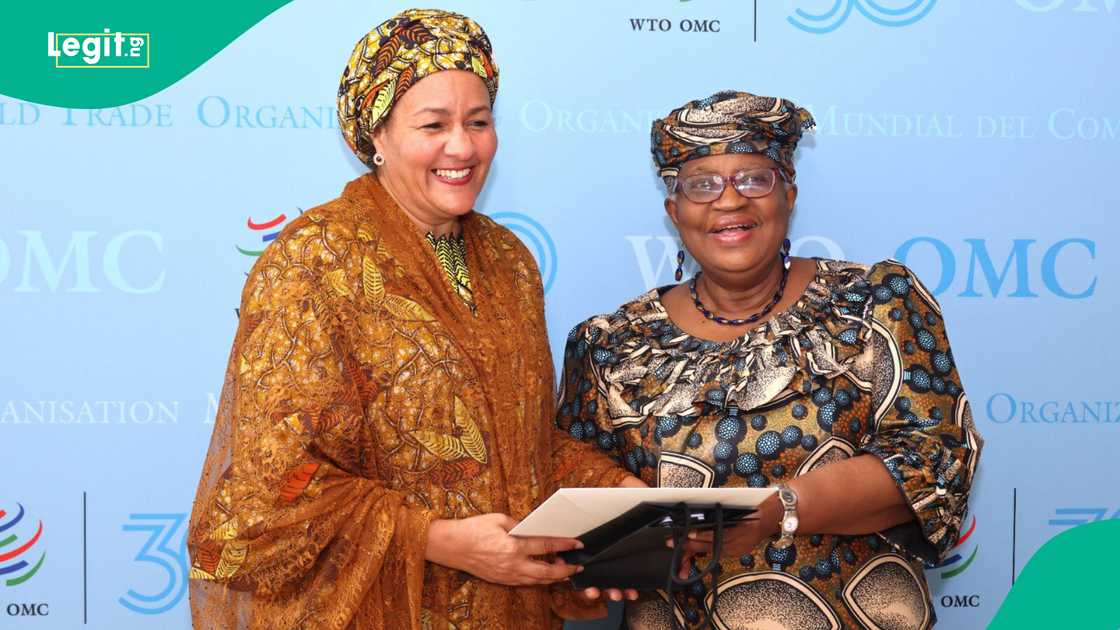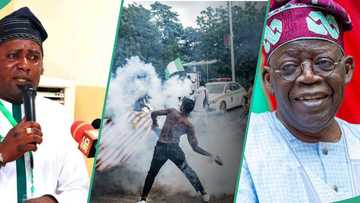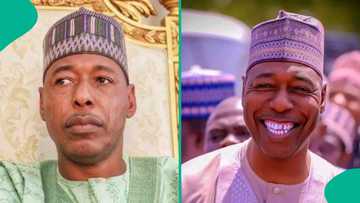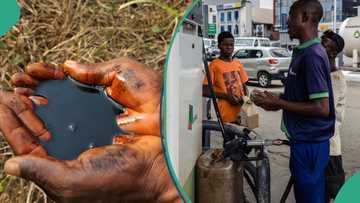From Grassroot to Govt: How Nigerian Women Are Being Empowered Economically for Political Leadership
- In Nigeria, a movement is underway to empower women economically as a pathway to political leadership, addressing the significant gender disparity in political representation
- A coalition of civil society organisations led by the Nigeria Women Trust Fund has been working to increase women's participation in politics through grassroots activism, economic development, and legal action
- The movement aims to equip women with skills, financial resources, and political training to become economically independent and pursue political aspirations
In Nigeria, a sweeping movement is reshaping the political landscape by empowering women economically as a strategic pathway to political leadership.
This initiative, which integrates grassroots activism with economic development, transforms how women engage with politics and governance in a country where gender disparity in political representation remains significant.

Source: Twitter
Historically, Nigerian politics has been dominated by men, with women often relegated to the sidelines. Despite the country's rich tapestry of female leaders, such as Professor Grace Alele-Williams and Ngozi Okonjo-Iweala, who have significantly impacted education and finance, respectively, women's representation in elected positions has lagged.
The 2023 elections illustrated this issue vividly, with women holding less than 7% of seats in both houses of the National Assembly.
To address this imbalance even before the elections, a coalition of civil society organisations led by the Nigeria Women Trust Fund (NWTF) envisaged these shortcomings and dug deep to exploit the statutory provision of the national gender policy, which birthed the movement of the 35% affirmative action for women.
This movement to give women redemption and freedom became a legal debate. On April 6th, 2022, a crucial advancement for women's political rights was achieved when the Federal High Court in Abuja ruled in favour of increasing women's participation in political processes.
This decision came after the Nigerian Women Trust Fund (NWTF) and other plaintiffs, including Women Empowerment and Legal Aid (WELA), Women in Politics Forum (WIPF), Centre for Democracy and Development (CDD-West Africa), Women Advocate Research and Documentation Centre (WARDC), Vision Spring Initiatives (VSI), YIAGA Africa, International Federation of Women Lawyers (FIDA), and the 100 Women Lobby Group, began legal action in 2020.
Following several delays, the court delivered a landmark judgment, granting all five of the reliefs requested by the plaintiffs:
Declaration that the failure of the Federal Government to implement the 35% affirmative action policy is illegal, unlawful, null, and an arbitrary violation of the National Gender Policy, 2006.
Declaration that failing to implement the 35% affirmative action policy violates Sections 42, 147 (3), and 14 (3) of the 1999 Constitution as amended and Article 19 of the African Charter on Human and Peoples' Rights.
Declaration that the predominantly male appointments to decision-making positions are unlawful, unconstitutional, and violate the rights of the female gender to equal access to public office.
An injunction restraining the federal government from making appointments in a manner violative of the 35% affirmative action policy.
An order mandating compliance with the principle of equality of the sexes in all appointments, in accordance with the Constitution and the African Charter on Human and Peoples' Rights.
Empowering women for political leadership
It is also essential to know that the struggle for women's inclusion in politics requires equipping women with the tools that prepare them from inception to become worthy leaders in society.
The NWTF, for example, has exploited that angle by equipping women with skills and financial resources to create a pool of economically independent women who can leverage their newfound stability to pursue political aspirations.
Earlier this year, the Nigerian Women Trust Fund (NWTF) introduced the fourth edition of its influential project, designed to tackle gender-based violence and strengthen women-led organisations throughout Nigeria.
This initiative is designed to support organisations in Nigeria's six geopolitical zones.
Its main objectives are to carry out activities aimed at eliminating gender-based violence while simultaneously amplifying the voices and capabilities of women-led institutions.
This holistic strategy highlights NWTF's dedication to promoting positive transformation and advancing gender equality nationwide.
Advocacy for gender parity

Read also
Protests: Security expert lists 3 actions Tinubu, security forces failed to take to forestall unrest
Similarly, the NWTF has hosted a series of interventions and programmes over the years to support female politicians ahead of the general elections and educate and mobilise women at the grassroots level to be actively involved in the electoral processes.
This also includes policies that promote gender parity in party leadership positions, improve legal protections for women, and ensure women have equal political training and education opportunities.
The ongoing dialogue around these issues reflects a growing recognition that women's participation in politics is not only a matter of gender equality but also a crucial component of democratic development.
As Nigeria moves towards the 2027 elections, there is increasing momentum to support women through economic means and structural reforms that promote inclusivity in politics.
Nigeria's innovative approach to empowering women economically as a route to political leadership is a promising model that aligns with global movements towards gender equity.
The country, through civil societies with aligned goals, addresses economic and political barriers, laying the groundwork for a more equitable political landscape.
If successful, this strategy could serve as a blueprint for other nations grappling with similar challenges, proving that economic empowerment and political engagement can indeed go hand in hand.
Oduah, Okonjo-Iweala share experiences in politics
Earlier, Legit.ng reported that Nigerian politicians like Senator Stella Oduah and Dr. Ngozi Okonjo-Iweala shared how they leveraged their networks to overcome significant hurdles in their political careers.
Senator Oduah, who has held various positions, including minister of aviation, credited her success partly to the support and mentorship she received from fellow women in politics.
Similarly, Dr Okonjo-Iweala, the former finance minister and current director-general of the World Trade Organization, highlighted the role of networks in her career.
PAY ATTENTION: Stay Informed and follow us on Google News!
Source: Legit.ng






